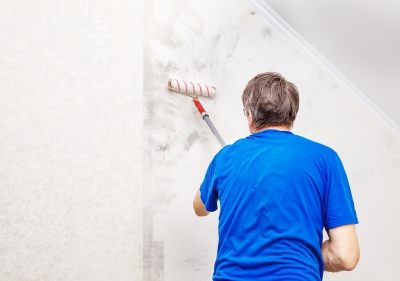What To Know and Do When a House Does Not Sell In a Seller's Market

If Your House Does Not Sell, You Probably Know Why. You just need to be bold and do something about it. You can do many things to improve your chances of selling a house at a great price. If you are working with a realtor, they can make suggestions on how to make your home more saleable, but addressing the following problem areas is always a great place to start.
What You Need To Know About Why a House Does Not Sell and What To Do About It...
- A smelly house can be a significant cause of a place not selling. The problem with odors such as
cigarette smoke and pet smells is that you live with them daily and may not notice them. To an outsider,
however, the smell will be pungent and noticeable.
You can eliminate these odors by smoking outside, keeping litter boxes fresh and in a contained area, repainting walls, shampooing and steam-cleaning carpets, and opening your windows to let in fresh air.
Don't try to cover odors with an air freshener without taking steps to eliminate the problem; it won't work and your house will still be smelly and unwelcoming to potential buyers. Removing odors from mold and mildew can be a little more challenging and may require professional intervention if the affected area is not easily accessible (between walls, for example).
- Pets - you love them and think of them as part of the family, but a potential buyer may not share your sentiment. So, like other family members, your furry companions should not be on site while someone is inspecting
your house. Pile everyone in the family vehicle, or crate your pets in the yard
so potential buyers can look around without being barked at, snarled at, or
pounced on.
- Bathrooms are associated with hygiene, so unclean bathrooms
are a major turn-off for most buyers. Ensure your toilet, tub, and sink are sparkling clean, and the drains are clear and free of wet hair and other
odor-trapping debris. Shine your faucets and mirrors, de-clutter the medicine
chest, empty the trash pail, and launder your towels, shower curtain, and floor
mats.
- Dark rooms look dingy and uninviting. Increase the
brightness factor of your rooms by adding brighter bulbs (if appropriate),
installing extra fixtures, or placing accent lamps or cabinet lighting
throughout the room. Pulling back heavy curtains and lifting your blinds is an even more straightforward fix. Trimming low-hanging branches from nearby trees can also
help.
- Busy wallpaper is a no-no. Too many patterns can be
distracting and can date your décor. Consider removing busy wallpaper, but
don't paint over it because that will look even worse.
- Wet basements are a cause for concern as they can indicate
foundation leaks. However, damp basements are often a sign of poor
ventilation, plugged drains, or improperly positioned downspouts. Remove any
mold or mildew that may have appeared due to dampness.
- Bugs are usually harmless but are still an obstacle to
home sales. Squash what you can, clear cobwebs, and enlist professional help if
you have an infestation.
- Low curb appeal is a significant factor when a house does not sell, as it can discourage potential buyers from looking closer at your home. Spruce up your yard, entry, and façade. Make sure
your paint isn't peeling, and that gardens look their best, even if they are out of
season. Bicycles, lawnmowers, and tools should be neatly stored in a shed or the garage if necessary.
- Plugged Gutters. Potential buyers may overlook blocked gutters
during an initial showing. Still, they will become problematic during a professional building
or home inspection, which could be the difference between a conditional sale
going ahead or not.
- Clear out when someone is looking at your house. If you hover over their shoulders, potential buyers may feel awkward looking around your house. Working with a realtor to sell your house eliminates this problem, as they act as chaperones during the showing without intimidating your buyer.
Most of these fixes are simple and inexpensive to implement, yet can have a major impact on the salability of your house. If possible, address any of the issues that are present in your home before you list it for sale.
Related page you might like...
Real Estate Appraisals Are For Lenders; Not Buyers and Sellers
Step By Step Closing Procedures
7 Options You When Your Home Won't Sell
Home Page > Real Estate Articles >> Real Estate Articles for Sellers >> House Does Not Sell
Image courtesy of radnatt at FreeDigitalPhotos.net

